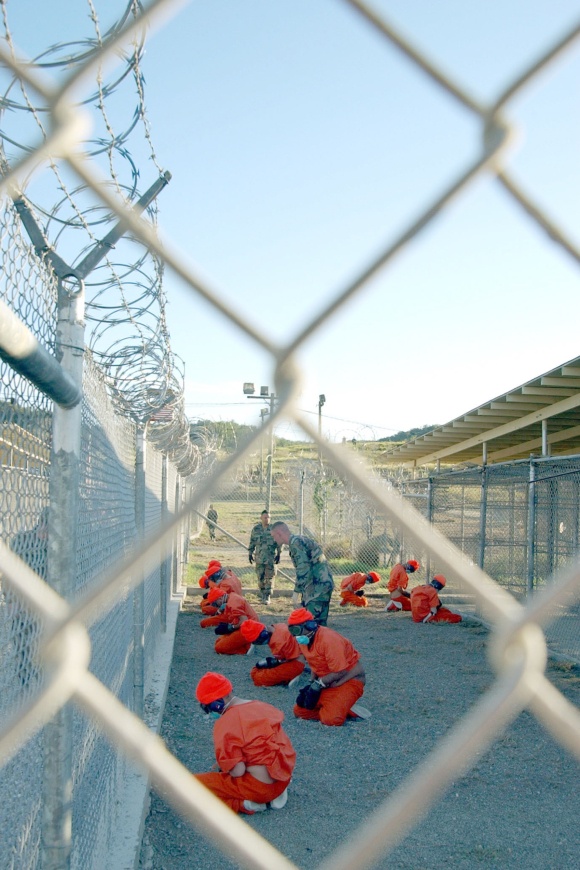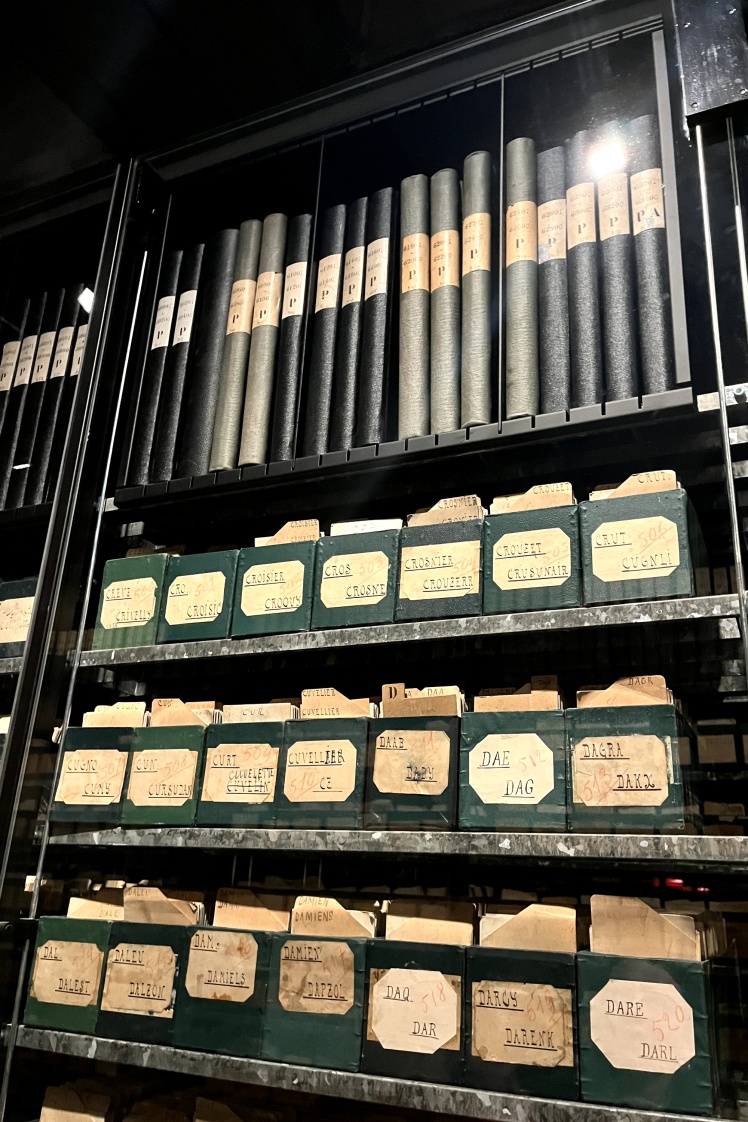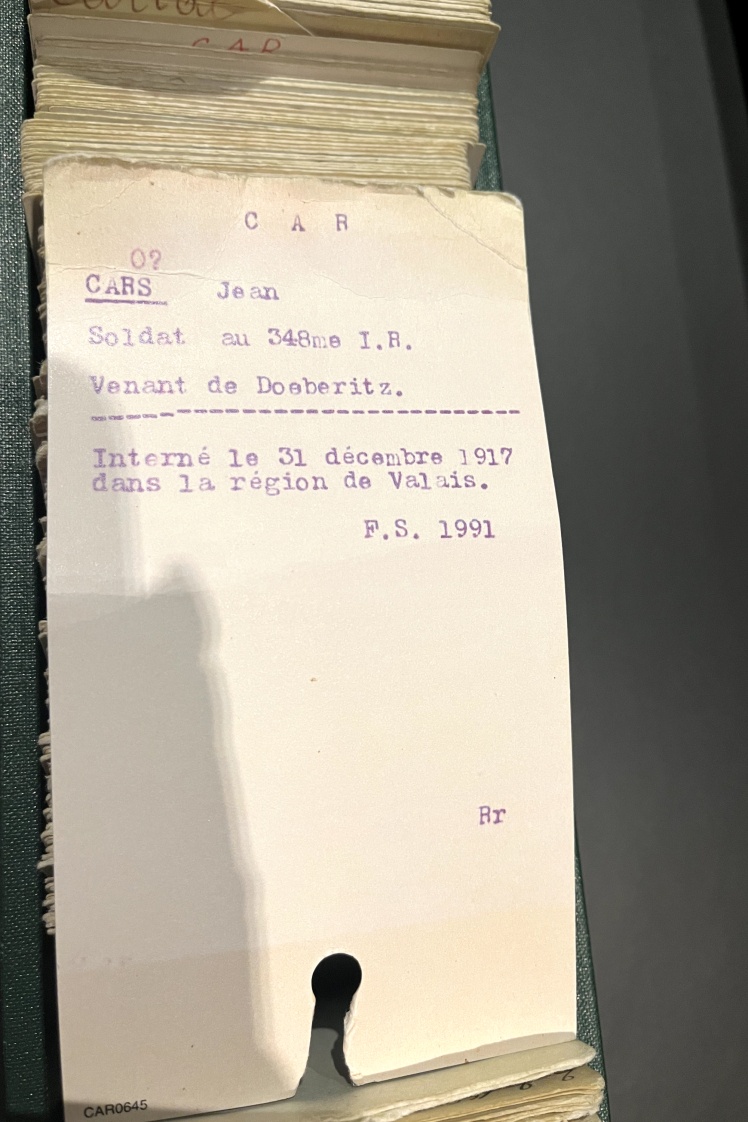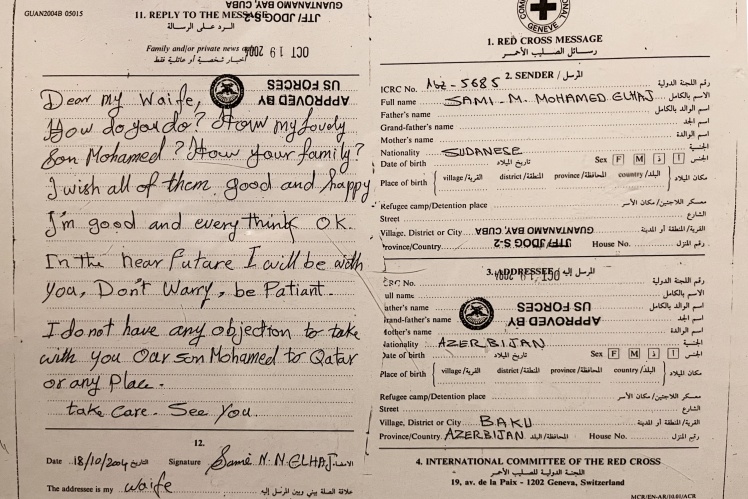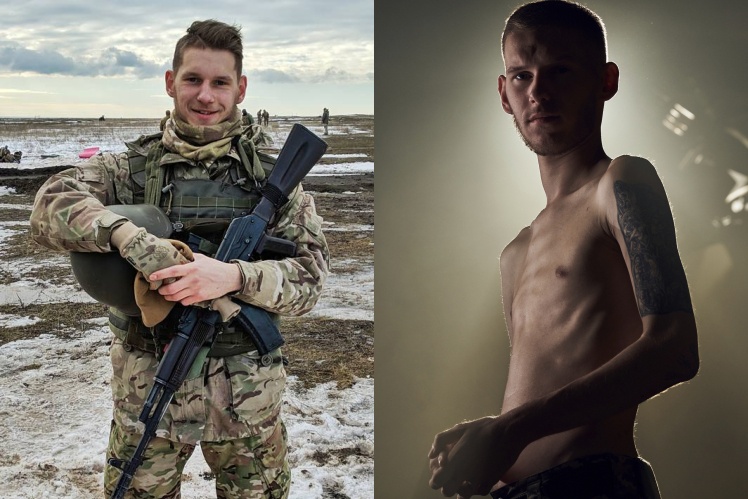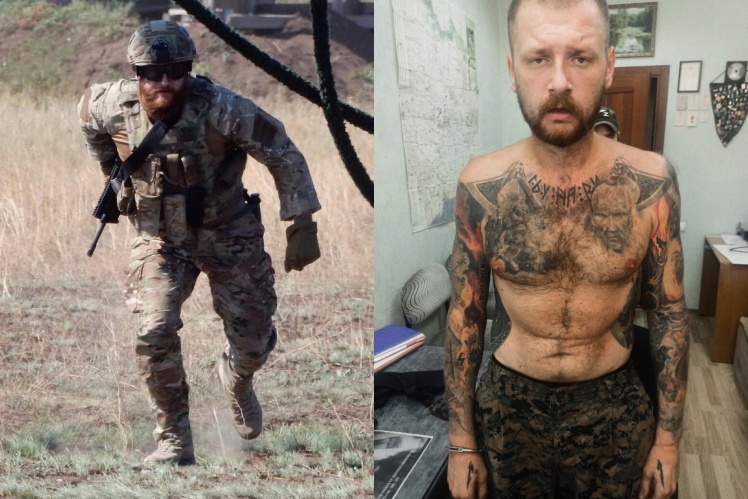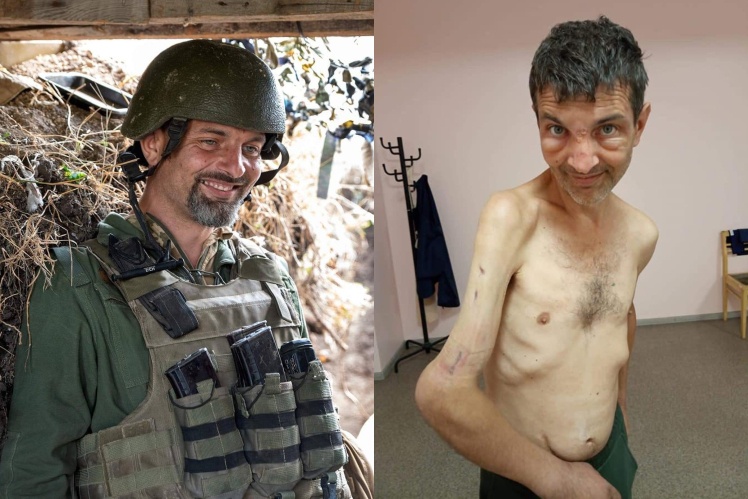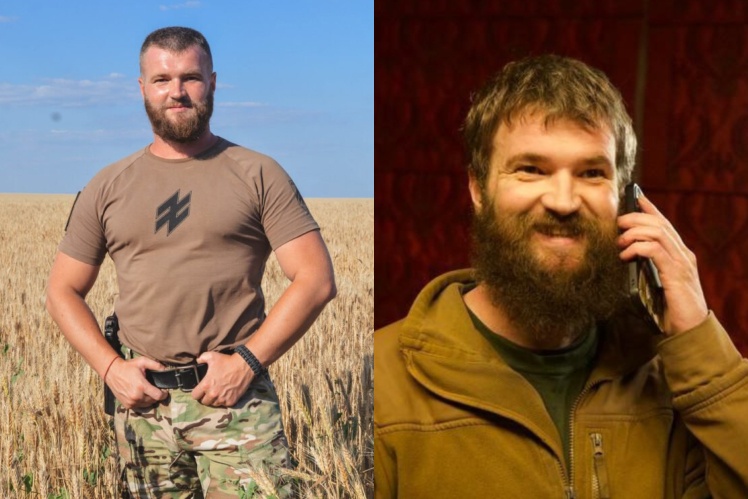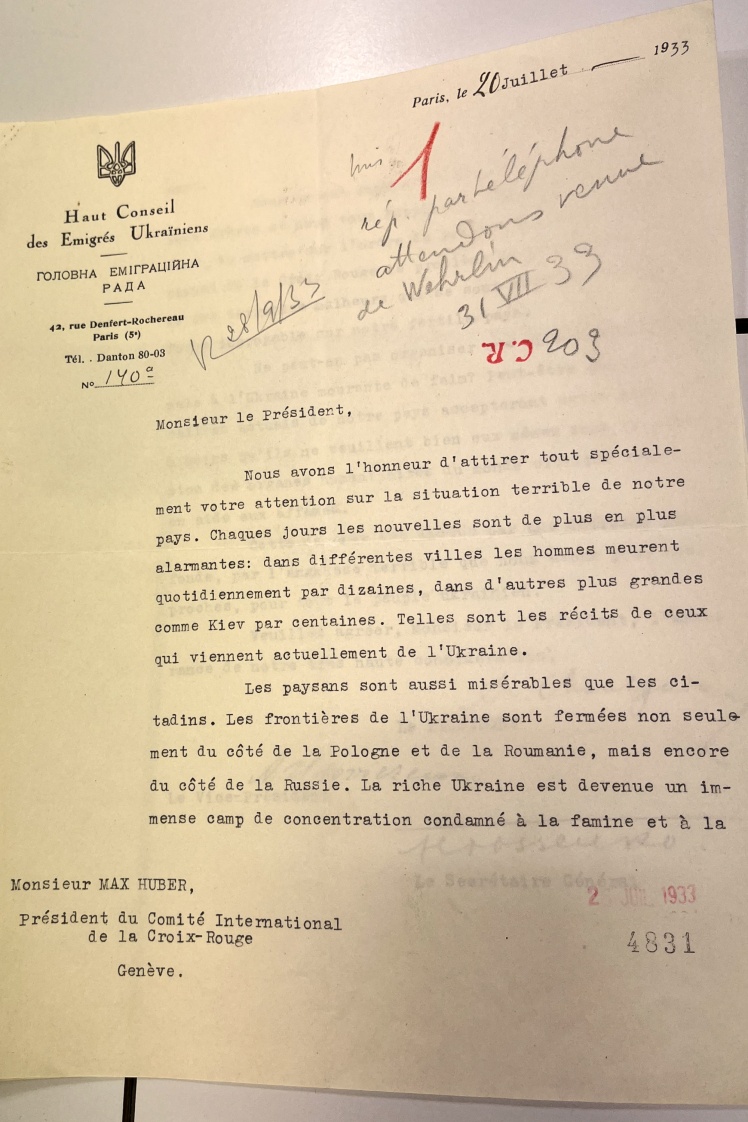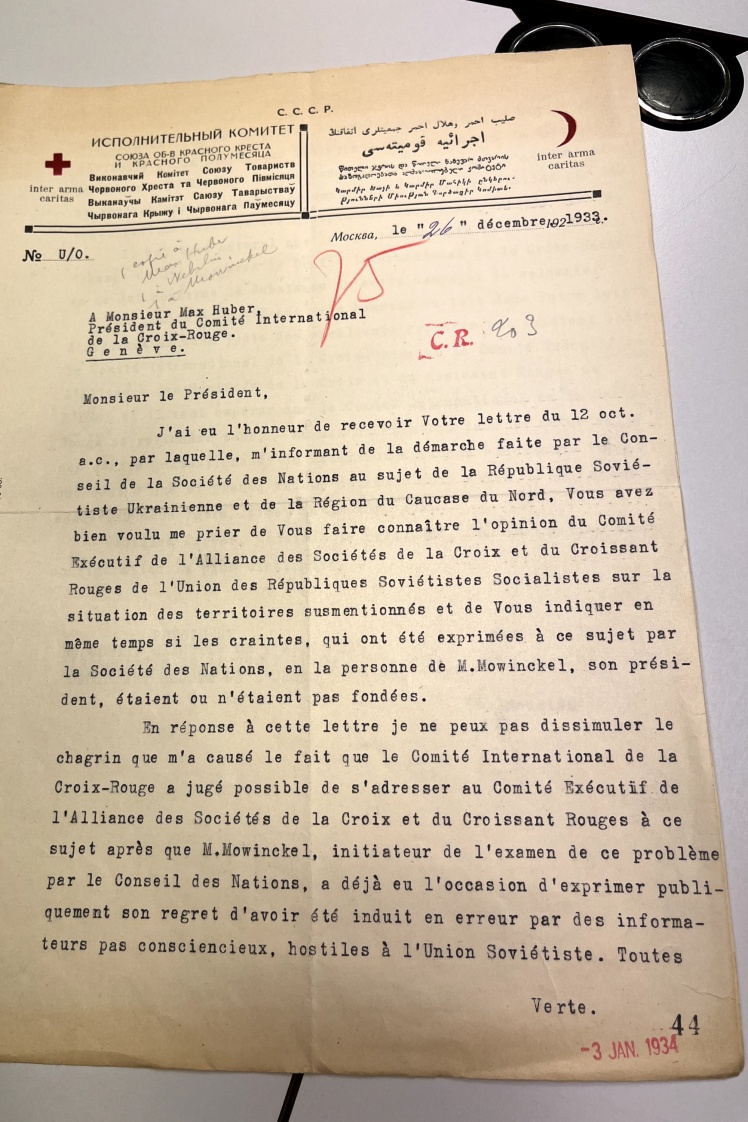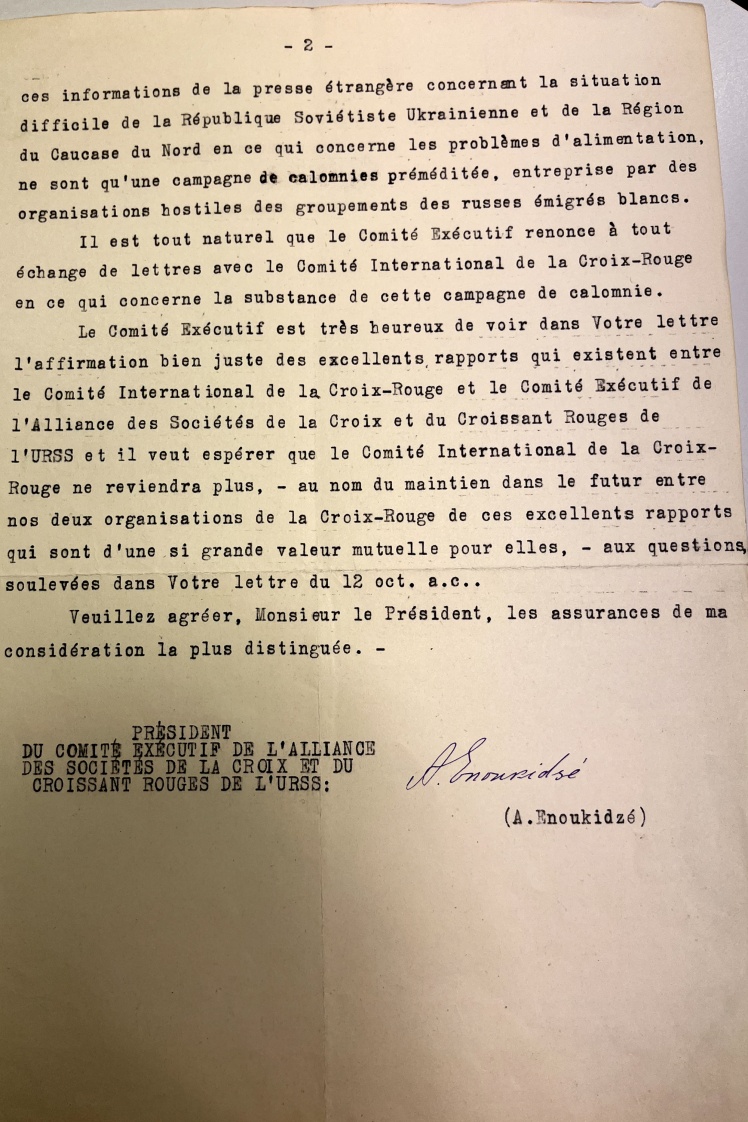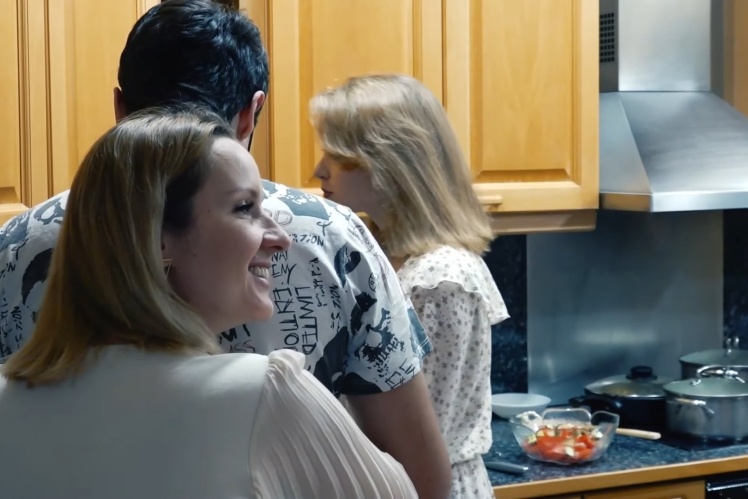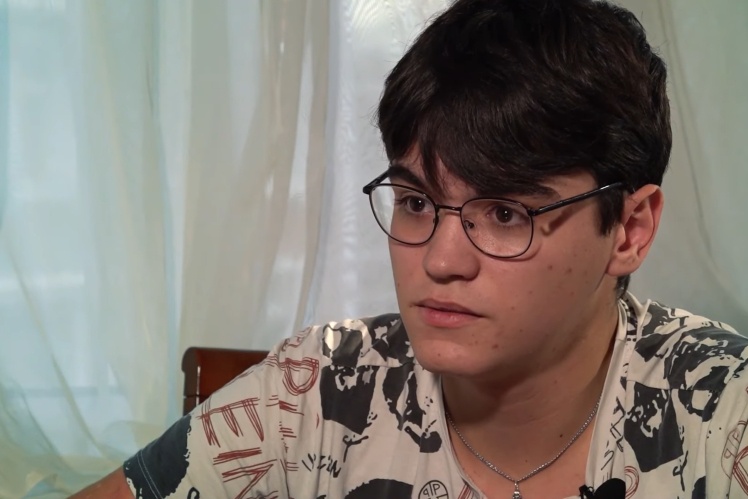You have been working in the Red Cross for quite some time, specifically in the department responsible for visiting prisoners. It started with the war between Eritrea and Ethiopia, then there were prisoners in Kyrgyzstan and Uzbekistan. What were the difficulties in the missionʼs work then?
Itʼs not only about armed conflicts, it can be people detained by special services. In Eritrea, I visited police stations, in Uzbekistan — camps for interned citizens. I visited Guantanamo in Cuba several times. Of all the things the ICRC is mandated to do during wartime, working with prisoners of war is usually the most sensitive and difficult task. I have never seen a country in my life where access to prisoners or civilians was easy.
The American prison Guantanamo in Cuba, 2002.
Getty Images / «Babel'»
If you canʼt get access, what do you do, what tools do you use?
There are several ways in which we try to operate. They are the same all over the world. First of all, we are in contact with all the key actors who can influence this decision. It can be the Ministry of Defense, the Ministry of Justice, the Ministry of Internal Affairs, sometimes the special services. Trying to force a state to respect international law is the first tool we use, reminding them of their obligations.
The second way is diplomatic mobilization. This follows from the first article of each of the four Geneva Conventions. It says that every state must respect and ensure compliance with international humanitarian law. Everyone, not just participants in the conflict. Therefore, we usually try to attract the attention of various states through diplomatic channels so that they influence and contribute to the work of the ICRC.
Which of these tools helped you gain access to Guantanamo prisoners? Am I correct in my understanding that the delegation was never able to visit all the detainees in this prison?
Iʼm sorry, but we have to maintain confidentiality in this matter and we reserve the right for the state to comment on such things.
Yes, but it is important. The USA is as big a power as Russia, few people can force these two countries to do what they donʼt want. So I wonder how long it took you to get access to the prisoners at Guantanamo?
It was a matter of months. The main thing is to get at least some access, and then expand it. You probably know that until now the ICRC has not been able to get access to all places and all prisoners of war in the Russian Federation. But we are the only organization that has such a mandate. Our rules are the same for the whole world. We arrive, inspect the place of detention, ask for a meeting with every person who agrees to speak with us without witnesses. We usually have a doctor with us who also has the right to see everyone in person. We may collect information and share it with relatives.
After the visit, we make a full confidential report to tell the authorities of the country holding the prisoners what we saw and what concerns us. We give them recommendations to improve the situation. We use the same methodology in Ukraine, in Russia, and in Guantanamo Bay.
Герман Крігер / «Бабель»
Could you compare your experiences in other countries with the war in Ukraine?
To compare, I need to rank the states, which is something we donʼt do at all.
Can you say how many Ukrainian prisoners of war you managed to visit?
We never make public the number of people we visit — neither in Ukraine nor in Russia. During the conflict, there are not only prisoners of war, there are civilians who are also kept in prisons by the parties to the conflict, and there are missing persons. We are trying to understand the total number of these people. And it is for this purpose that the Central Tracing Agency was created in Geneva. In March last year, together with this agency, the two countries created the National Information Bureau [NIB]. There is one important figure that I can name: thanks to the creation of these NIBs, we were able to inform 3,250 families (on both sides of the front line) about their loved ones who are deprived of liberty or have disappeared.
In Russia, Ukrainian prisoners managed to convey 276 written messages to their families and 534 oral messages. That is, in total, we were able to transmit more than 800 messages from the places we managed to visit.
This is what the card file of Red Cross messages about prisoners of war from the Second World War looks like. Each card has a name, surname, date of birth, service unit and place of capture.
Does this mean you have met these people in person?
Yes, we saw them. We were also able to facilitate the exchange of letters. In total, we are talking about 3,400 letters. It was often the only way for a family to find out if their relative was alive. This number will grow.
Why am I asking about the numbers, because my interlocutors in the authorities say that out of 1,863 Ukrainians released from captivity, no one met with the Red Cross.
This means that these people were apparently being held in places that we are still asking to be given access to. It is very important for us to communicate with those prisoners of war who are returning home. Upon return, they or their families may need psychosocial support. The second reason is the opportunity to ask them about the conditions of detention where we have not yet been admitted.
Did you get to talk to those who returned?
Yes, with many of them.
The Geneva Conventions prohibit the torture of prisoners of war, including torture by starvation. Russia violates international law and starves Ukrainian prisoners. Press officer of "Azov" Dmytro Kozatskyi before and after capture.
Facebook / «Бабель»
One of the claims of the Ukrainian authorities is that for almost a year, Russia has not allowed you to visit the captured Ukrainians, and you donʼt claim that it violates the Geneva Conventions. You keep showing your neutrality and still donʼt get access here. Why?
It is important to pay attention to the nuances. If we look at the government, there are many different departments and ministries in Ukraine with which we work and with which we have very good relations. If some of the authorities are dissatisfied with the fact that we are not given access to prisoners of war, it is important to say that this is only one direction of our activity. And one of the most difficult.
Yes, but you are the only organization that has this mandate…
We are not only well aware of this problem, but also take it very seriously because we see the suffering of families. Perhaps the problem is that our special approach is sometimes perceived as if we do nothing.
And people also want us to evaluate and compare countries, say that some state is doing well, and some is doing badly. But we are a neutral organization. We need to be very careful not to be pushed into politics. We need trust to gain access step by step, bit by bit. If we start making loud statements, engage in advocacy, work as human rights associations, we will not be able to do what we should.
Iʼm not saying that you should always be silent. But everyone has to play their part. Ours is not to point the finger, but to carry out tasks. And this is difficult to perceive not only in Ukraine, but also in many other countries.
Герман Крігер / «Бабель»
Does Ukraine admit you to all the prisoners on our territory?
From what I can tell you, we are cooperating very closely in Ukraine with the Minister of Justice and the Coordination Staff for the Treatment of Prisoners of War. We visit places of detention on a regular basis and share our findings and recommendations with the authorities.
In Geneva, I had the opportunity to visit the archive of the International Committee of the Red Cross. There they showed us the letters. One is from the Ukrainian diaspora to the ICRC with a request to verify information about the famine in Ukraine. The second letter from the ICRC to the Soviet authorities with a request to grant access and allow representatives of the Red Cross to visit Ukraine. The third is from the Soviet authorities, who called the message about the famine propaganda and did not grant access. It was in 1933. And then 4.5 million Ukrainians died from the Holodomor organized by the Kremlin. That is, the aggressor countries have been ignoring their obligations for decades. Perhaps it is time to change something in international law so that the Red Cross can fulfill its responsibilities?
The situation you are talking about was before WWII. After it, the world drew conclusions and concluded the [Geneva] Conventions, according to which we have been working since 1949. After the Second World War, we realized that the main victims of conflicts were not only combatants, but also civilians. Before the war, the ICRC could only visit prisoners of war. After the changes, we got the right to visit civilians as well. The Geneva Conventions were adapted to protect civilians. And this is a good illustration that the law can and should develop. But we must remember that the strength of the currently valid Geneva Conventions lies in the fact that they were signed by all the countries of the world, they all undertook obligations. Changing agreements requires international conferences, negotiations, and then diplomacy to persuade states to accept new ones, sign and ratify them. We are constantly proposing new changes to International Humanitarian Law. For example, the convention on the prohibition of the use of anti-personnel mines, or chemical weapons, or against nuclear weapons.
If everyone followed the existing rules, we would live in a better world. Therefore, I would not throw out the current laws, but fight for them to be respected and implemented.
A letter from the Ukrainian diaspora to the headquarters of the International Committee of the Red Cross in Geneva about the famine in Ukraine.
But right now, we see how Russia is flouting these conventions and all international law in general, and there is no serious punishment for this.
Political problems need political solutions. And to solve humanitarian problems, other solutions are needed. The ICRC is a purely humanitarian organization.
Children suffer the most during war. It is known that Russia forcibly deports children, grants them Russian citizenship, and orphans quickly try to be adopted by Russian families. Do you have the mandate to influence it?
We know about the problem of children who were separated from their families and taken out of Ukraine. But we need to understand exactly what we are talking about, because this is actually a very complex issue.
The National Information Bureau, which we support, collects information about the fate of such children — NIB figures are used on the Children of War website. We work together with such organizations as UNICEF, UNHCR, Save the children, Russia also has organizations dealing with children. We study who can do what and who has what mandate. With our mandate, we can concentrate on family reunification. And as soon as the relatives of the displaced children contact us, we can open a missing person case and do everything we can to find the children and try to get them back.
The childrenʼs ombudsman of Russia Maria Lvova-Belova violated international law and adopted a Ukrainian child, 15-year-old Pylyp from Russian-occupied Mariupol, without Ukraineʼs permission. In the photo, she hugs him. Pylyp from Mariupol.
Скриншот / Youtube / «Бабель»
There is another problem with children. Those who remained with their families in the occupied territories became victims of Russian terror. Russia forcibly Russifies them in schools: makes them sing the Russian national anthem, participate in patriotic organizations and take an oath of loyalty to Russia. Are you following this? Is this a violation of the Geneva Conventions?
We are closely monitoring the situation on both sides of the front line, and if we have concerns about certain issues, we discuss it with the relevant side of the conflict. But our activities in Russian-controlled territories are mainly limited to Donetsk and Luhansk. There are no ICRC representatives in those parts of the Kherson and Zaporizhzhia regions that are currently under Russian control.
Mural of the Russian youth patriotic organization Yunarmiya. On it, the murdered traitor of Ukraine, Ivan Sushka, appointed by the Russians as the head of the Mykhailivka village of the Zaporizhia region, is heroized.
Юнармеец / Telegram
Are you not allowed? What is the reason?
We were unable to secure access to these two areas. We have been working in Donetsk, Luhansk or Mariupol since 2014. We are constantly negotiating to start working in Melitopol, Berdyansk, Kakhovka and other places controlled by Russia and where the population needs our help.
The ICRC helps people affected by the war. How does it work and how can one get this help?
These are economic security programs, which are the largest in the ICRC. We mainly work along the front line in the east and south. In agreement with the Ministry of Social Policy of Ukraine, which provides us with a list of the most vulnerable people, we give them funds. It can be a woman with many children who has lost her husband. Or elderly people who cannot move. People usually spend this money on medicine, to fix the house, or just to buy food for the children. In 2022, we gave such financial assistance to almost 350,000 people.
I heard that you are going to help small businesses as well. Can you tell us more about it?
In 2023, we want to develop a program to support small businesses to refocus from emergency aid to something more sustainable. Last year, our food and hygiene kits reached about a million people in a war zone. We have allocated 4.5 billion hryvnias for the program of monetary support for the poor. This year, we are considering the possibility of supporting the economic initiatives of people living in territories that have suffered or are still suffering from military conflict. We will probably do this program together with other participants of the Red Cross movement. In such long-term programs, we try to distribute the work. We did this in Donbas until February 2022, so we have experience in this kind of support.
To apply for this program, a person will need to contact our office in Poltava, Dnipro or Odesa and check whether the business meets our requirements.
By the way, we try to buy most of what we provide here, in Ukraine.
When I was preparing for the interview, I got acquainted with your biography and learned that at the beginning of your career, you worked in Moscow at the ITAR-TASS agency as a translator. Does this experience help you understand Russia better?
While studying at the Institute of Political Sciences in Paris, I did an internship there. I studied the post-Soviet democratic transformation of the former Soviet countries, and thanks to this I managed to visit various places of the former Soviet Union, including Moscow. This experience really helps me understand some features of the mentality and do my job better.
Герман Крігер / «Бабель»
Another task of the Red Cross is to help in the exchange of soldiersʼ bodies. Can you do it?
Yes. We have already conducted 19 such operations between Russia and Ukraine. We have managed to bring back hundreds of fallen servicemen of Ukraine, who can then be identified and eventually returned to their families for burial.
Since October, Russia has been massively shelling Ukraineʼs energy infrastructure. Do you help to restore it?
Yes, we do. We brought transformers to a number of power plants — six of them in Mykolaiv alone. In addition, last year we donated 550 generators to hospitals and schools.
We also support 170 hospitals and blood banks located close to the front lines. We transfer medicines, radio-technological equipment and breathing apparats there.
We are also helping water supply facilities to restore the supply in Kharkiv, Chernihiv, Lyman, Izyum and throughout the front line. Irpin was the first city where we restored access to clean water, and a total of 10.7 million people received clean water with our help.
Does the Red Cross work in occupied Crimea? For example, there is information that a psychoneurological dispensary with 54 women was taken there from the Kherson region. The exact address is known, it is necessary to go and check and return them home, because the relatives have this request. Who can do it?
As far as I know, we donʼt work in Crimea.
And the delegation of the Red Cross, which works in Russia, is allowed to the occupied Crimea?
As far as I know, no delegations there in Crimea.
Герман Крігер / «Бабель»
Translated from Ukrainian by Anton Semyzhenko.
Support Babel to help us make more of such stories: 🔸 in hryvnia 🔸 in cryptocurrency 🔸 via Patreon 🔸 or PayPal: [email protected].

